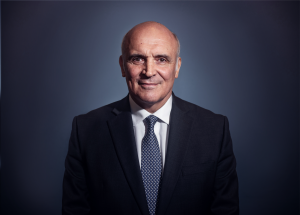Argentine savers protested angrily on Thursday at a Supreme Court ruling designed to end a five-year impasse over the forcible conversion of dollar savings into devalued pesos during the country’s 2001-02 crisis.
The judgment has caused further anger among many savers and could yet pave the way for more litigation.
The court upheld a government move on Wednesday and ordered that the value of dollar savings frozen at the end of 2001 to prevent a run on the banks and then converted into pesos at the start of 2002 would be repaid at current market rates and in pesos.
Jose Luis Espert, an economist, said: “Even if they are given the same amount as their dollars in 2001, a dollar today is not the same as a dollar five years ago.” Mr Espert noted that the ruling gave no compensation for any return on the savings that people could have made during the past five years – a loss of 30 per cent, according to some calculations.
Bankers declined to comment until they had studied the ruling carefully, but one bank official said it had widely been expected and planned for.
“This isn’t going to affect operations. Every bank has bargained for this,” said the official, who declined to be named.
The ruling is expected to apply to an estimated 50,000 pending lawsuits. Dozens of Argentines gathered outside the Supreme Court with signs saying “Corrupt, thieves, give us back our savings” and “Remember: the banks robbed you and they’ll do it again.”
After this ruling, they are worse off than savers who accepted earlier government offers, including bonds.
Some savers had brought legal action and managed to win back their entire savings at better rates.
Daniel Sabsay, a constitutional lawyer, said: “The whole situation is so absolutely abnormal. I can’t see how [the Supreme Court ruling] could have been fairer.
“I think it’s a fairly equitable way of at least trying to resolve the issue,” he added.
Alberto Fernandez, the cabinet chief, said the ruling gave savers certainty about their rights.
However, Carlos Baez, the president of the Association of Savers of the Argentine Republic, said the ruling was flawed because one Supreme Court justice declared the peso conversion to be unconstitutional but then upheld it anyway. Mr Baez said he would take the fight for damages to the Inter-American Commission on Human Rights.
His own savings of $300,000 were affected and, he said, his wife was one of an estimated 30,000 Argentines who had died of a heart attack as a result of the peso swap.
“Economically, I would have been better off accepting bonds but it wasn’t ethically viable for me,” said Mr Baez.
Mr Espert said it was lamentable that the court had upheld the expropriation of much of the nation’s savings. “It’s one more example of this country’s institutional shortcomings,” he said.
The government still faces litigation by the holders of $20m worth of bonds who refused a 70 per cent writedown on their debt and are suing for full reimbursement.

